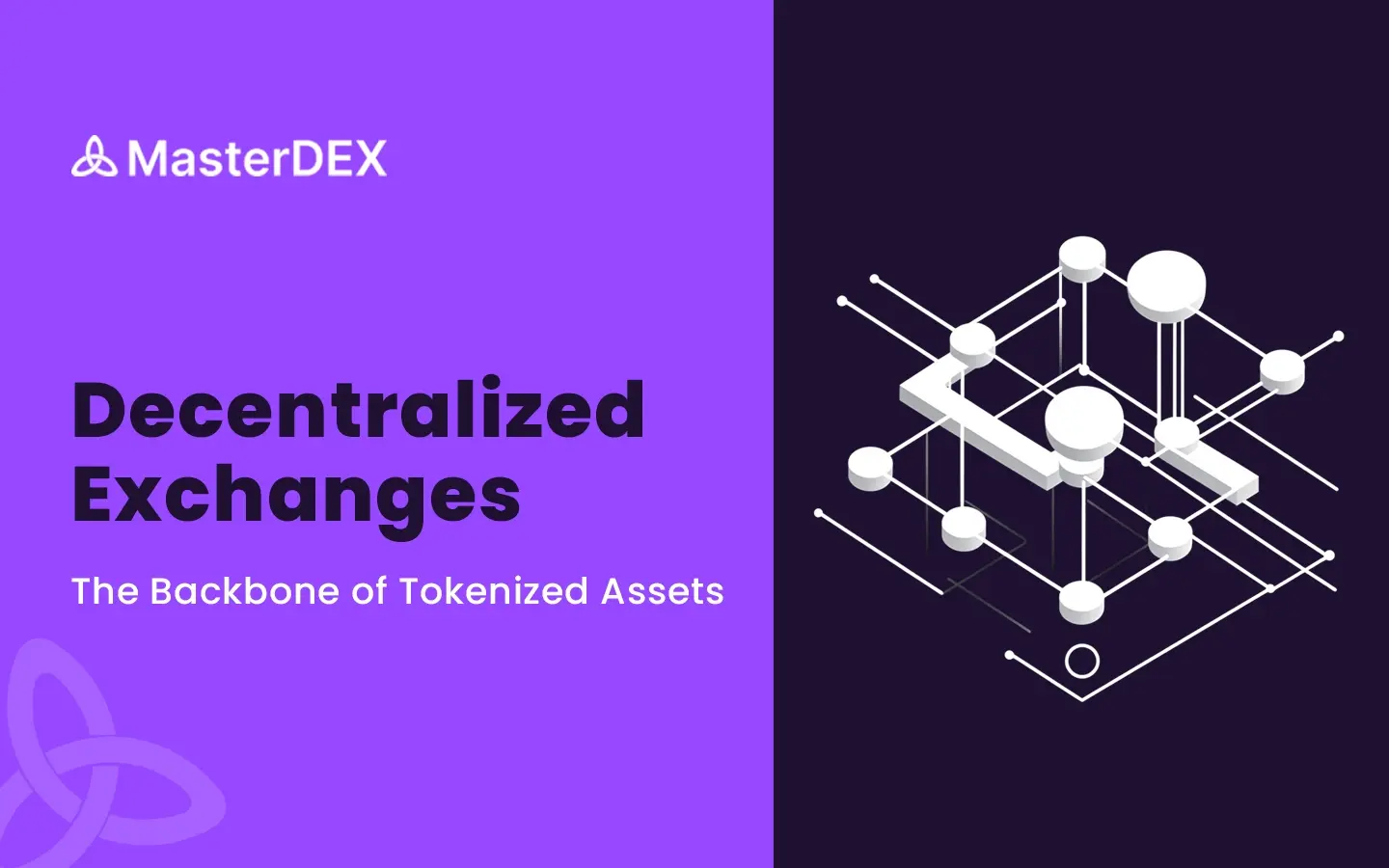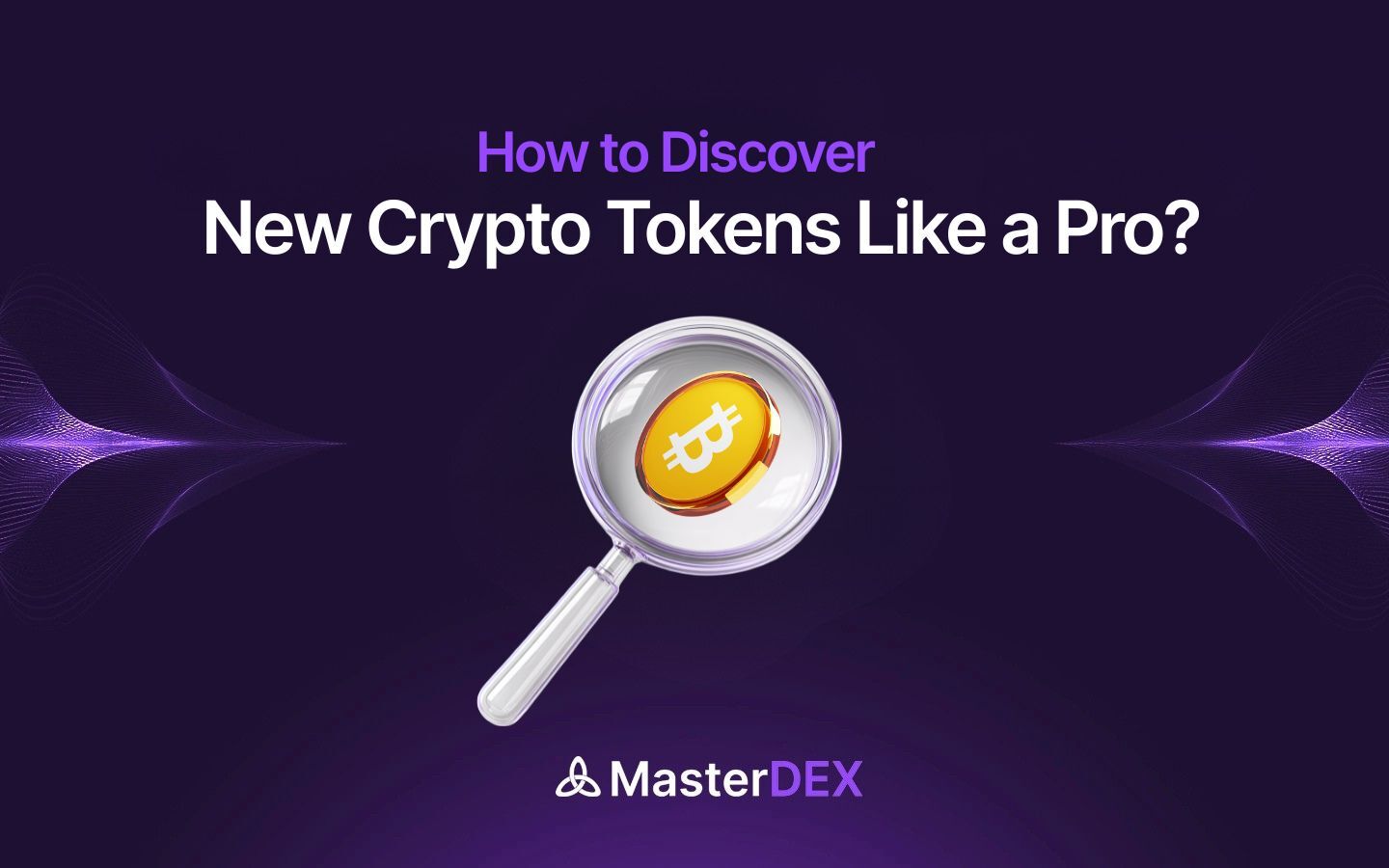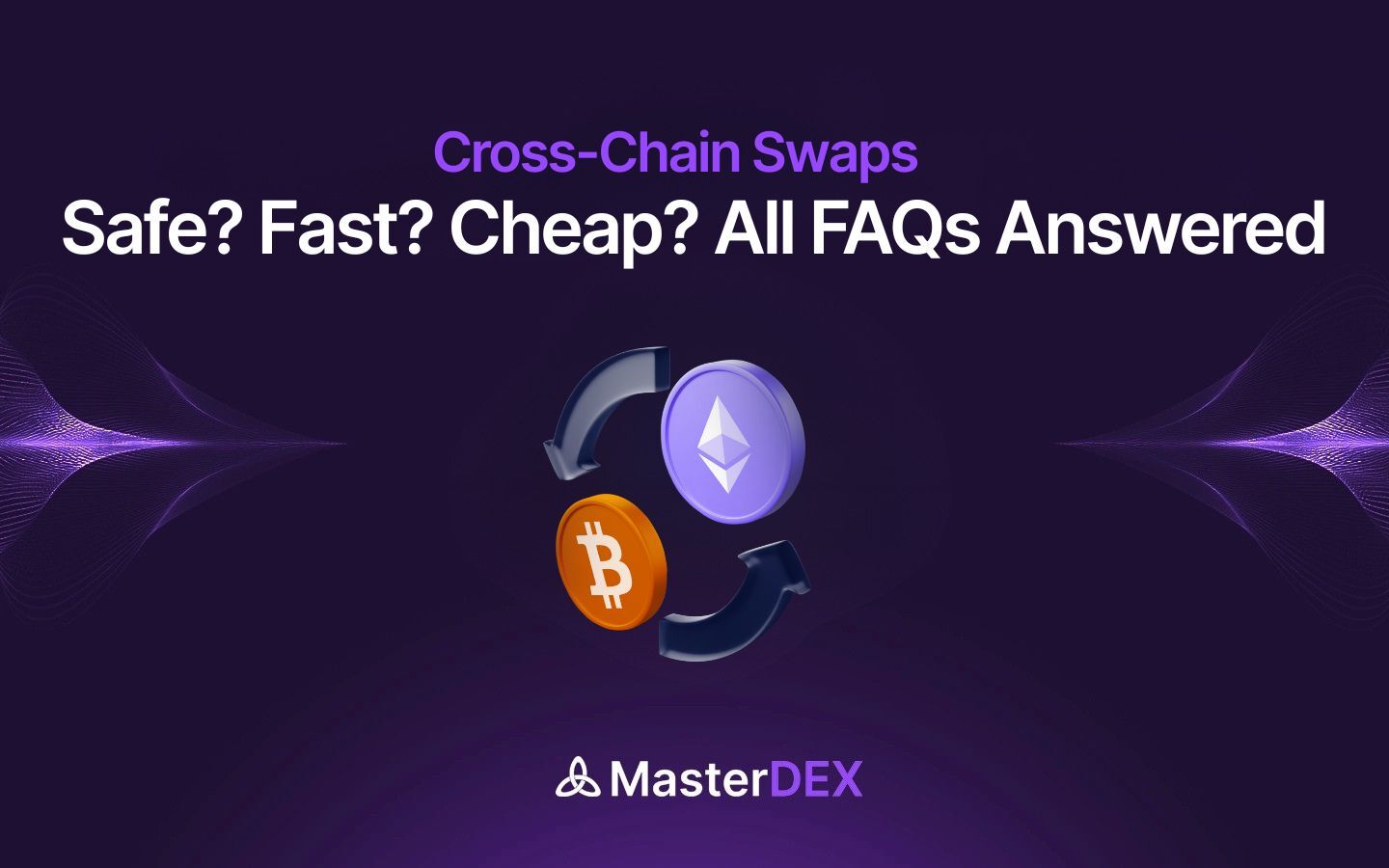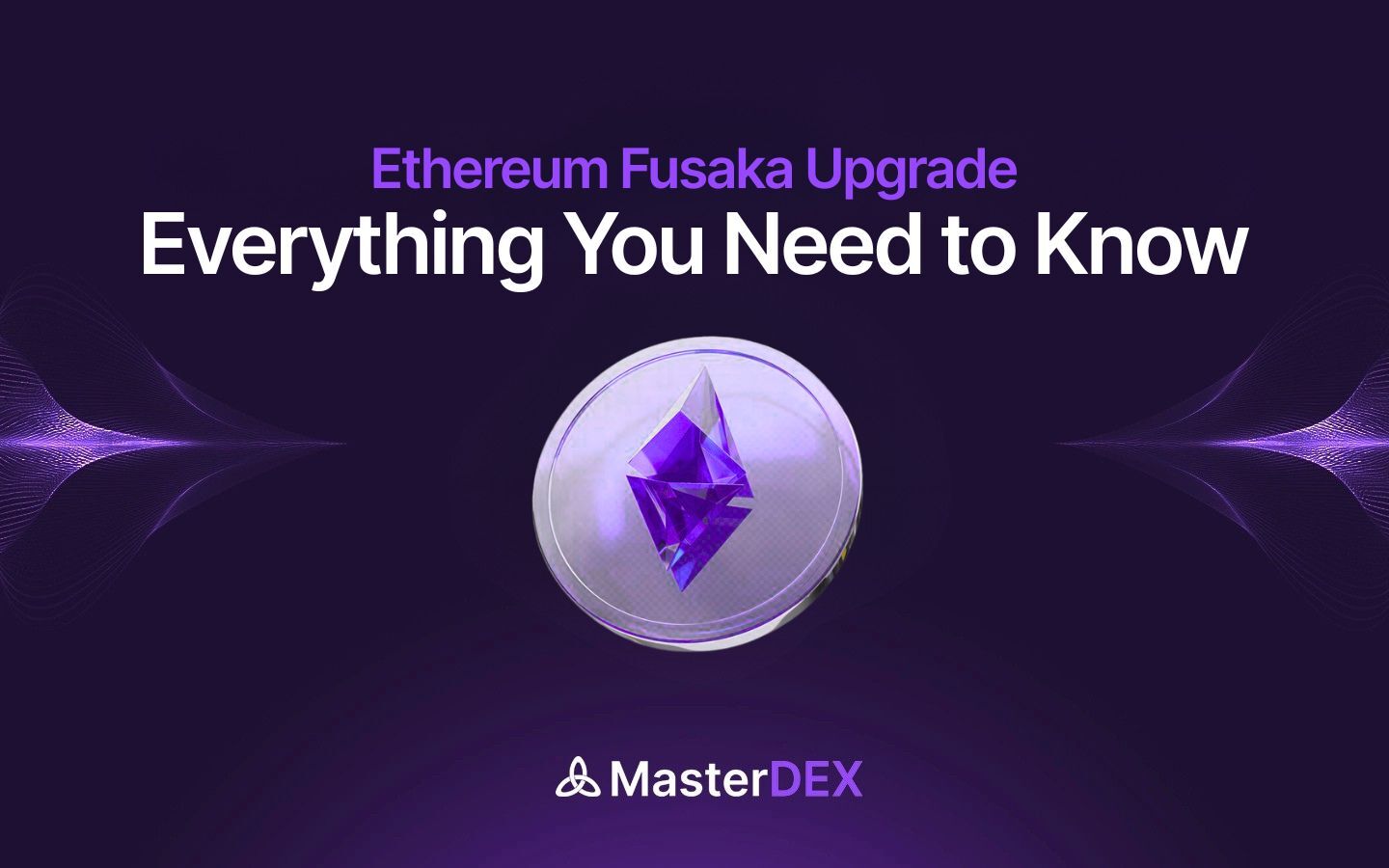This article details what are decentralized exchanges(DEXs), tokenized assets, and key advantages of decentralized exchanges for tokenized assets, and challenges it faces in tokenized asset trading. So, let’s dive in.
Table of Contents:
ToggleIntroduction to Decentralized Exchanges
Decentralized Exchanges (DEXs) are blockchain-powered platforms that enable peer-to-peer trading of digital assets without intermediaries. Unlike centralized exchanges, decentralized exchanges operate on smart contracts, ensuring transparency, automation, and security. The rise of DeFi (Decentralized Finance) has positioned DEXs as a cornerstone of the financial revolution, paving the way for a trustless ecosystem. With the advent of tokenized assets, decentralized exchanges are becoming critical in bridging traditional financial systems with the blockchain economy.
Understanding Tokenized Assets
Tokenized assets are real-world assets—like real estate, stocks, commodities, or even intellectual property—represented digitally on a blockchain. These tokens provide fractional ownership, enhanced liquidity, and easier transferability. For example, instead of buying an entire property, tokenization allows investors to own and trade fractions of it. Tokenized assets are revolutionizing investment paradigms by enabling broader access and reducing entry barriers. The synergy between tokenized assets and decentralized exchanges is driving innovation in decentralized finance.
Key Advantages of DEXs for Tokenized Assets
Now that we have understood decentralized exchanges and tokenized assets, let’s explore major key advantages of DEXs for tokenized assets.
Enhanced Liquidity
Decentralized exchanges (DEXs) play a critical role in boosting liquidity for tokenized assets. Unlike traditional financial systems, where asset liquidity can be fragmented or limited by regional boundaries, decentralized exchanges connect a global network of traders. By aggregating liquidity from decentralized pools, they create continuous and vibrant markets for tokenized assets. This ensures smoother transactions, reduces price volatility, and enables fairer pricing—key elements for the successful trading of tokenized assets.
Lower Transaction Costs
One of the standout benefits of decentralized exchanges is their ability to significantly reduce transaction costs. Traditional exchanges involve intermediaries such as brokers and custodians, adding layers of fees to each transaction. DEXs eliminate these intermediaries, leveraging blockchain technology and smart contracts to automate processes. This streamlined approach not only reduces costs but also makes trading tokenized assets more accessible for small-scale investors and frequent traders.
Faster Transactions
DEXs are built on blockchain networks, enabling near-instant transactions compared to traditional systems that can take days for settlement. This speed is particularly advantageous for tokenized assets like securities or commodities, where timely transactions are crucial. Faster settlements minimize counterparty risk and improve the overall efficiency of trading ecosystems, making DEXs an attractive platform for high-frequency and time-sensitive asset trades.
Democratized Access
DEXs democratize access to financial markets by removing traditional barriers like geographic restrictions, credit checks, and minimum deposit requirements. Tokenized assets, which represent fractional ownership of high-value items such as real estate or art, become accessible to a wider audience. Through decentralized exchanges, retail investors can participate in markets previously dominated by large institutions, leveling the playing field and fostering financial inclusion.
Transparency
Transparency is a cornerstone of decentralized exchanges. All transactions on DEXs are recorded on public blockchains, allowing anyone to verify their authenticity. This openness reduces the risk of fraud and enhances trust among participants. For tokenized assets, transparency ensures clear ownership records and transaction histories, which are essential for maintaining investor confidence in both the assets and the platforms that facilitate their trade.
Security and Ownership
DEXs prioritize user control and asset security by enabling self-custody. Unlike centralized exchanges, where users entrust their funds to third parties, decentralized exchanges allow traders to retain full ownership of their private keys and assets. This self-custodial model reduces the risk of hacks or insolvencies. For tokenized assets, this feature is particularly valuable, as it safeguards high-value holdings like tokenized properties or luxury goods.
Global Reach
Operating on decentralized infrastructure, DEXs transcend geographical boundaries, providing global access to tokenized asset markets. This borderless nature makes it easier for investors from any part of the world to participate in trading opportunities. For example, a tokenized commercial property in the United States can attract investors from Europe, Asia, or Africa, creating a truly global marketplace for tokenized assets.
Flexibility and Interoperability
Many decentralized exchanges support multiple blockchains and token standards, offering flexibility to traders dealing with diverse assets. This interoperability allows seamless trading across various networks, increasing the range of available tokenized assets. Whether it’s tokenized real estate on Ethereum or any other valuable asset, DEXs provide a unified platform for diverse asset ecosystems, enhancing user experience and broadening market opportunities.
Privacy and Control
DEXs provide a higher degree of privacy compared to centralized platforms. Users can trade anonymously without undergoing extensive identity verification processes. This privacy is coupled with full control over funds, as transactions are executed directly from users’ wallets. For traders dealing with high-value tokenized assets, such as collectibles or securities, this privacy and control add an extra layer of convenience and security.
Trustless Transactions
DEXs operate on smart contracts, which automate and enforce transaction terms without the need for intermediaries. This trustless environment ensures that trades are executed fairly and transparently. For tokenized assets, smart contracts remove the need for escrow services or third-party guarantees, making the trading process simpler and more reliable. Trustless systems are particularly beneficial for high-value assets, where trust between parties can be a major concern.
By integrating these advantages, DEXs are reshaping the trading landscape for tokenized assets, providing a more efficient, secure, and inclusive system that aligns with the future of decentralized finance.
Looking for a seamless trading experience? Check out MasterDEX now and get started!
Challenges Facing DEXs in Tokenized Asset Trading
While DEXs offer numerous advantages, they face challenges, including:
- Regulatory Compliance: The lack of clear regulations for tokenized assets can limit adoption.
- Scalability: Current blockchain infrastructures often struggle with high transaction volumes.
- User Experience: Many DEXs have complex interfaces, deterring less tech-savvy users.
- Liquidity Fragmentation: The decentralized nature can lead to scattered liquidity pools, impacting efficiency.
Addressing these challenges requires innovative solutions like Layer-2 scaling, regulatory sandboxes, and user-friendly interfaces to ensure long-term growth.
Conclusion: The Transformative Potential of DEXs
Decentralized Exchanges (DEXs) are more than just trading platforms; they serve as gateways to a decentralized future. By offering secure, transparent, and accessible trading solutions, decentralized exchanges are transforming the way tokenized assets are managed and exchanged. Despite challenges, their integration with blockchain technology has positioned them as the backbone of a new financial era, unlocking unprecedented opportunities in the global financial ecosystem.
The future of DEXs and tokenized assets is closely intertwined, with emerging trends such as cross-chain compatibility enhancing liquidity and interoperability, and AI integration optimizing trading strategies and user experiences. As regulatory clarity improves, institutional adoption is expected to rise, further solidifying DEXs as essential players in tokenized asset trading. These advancements collectively drive the adoption of DEXs, making them integral to the evolving landscape of tokenized assets and decentralized finance.



